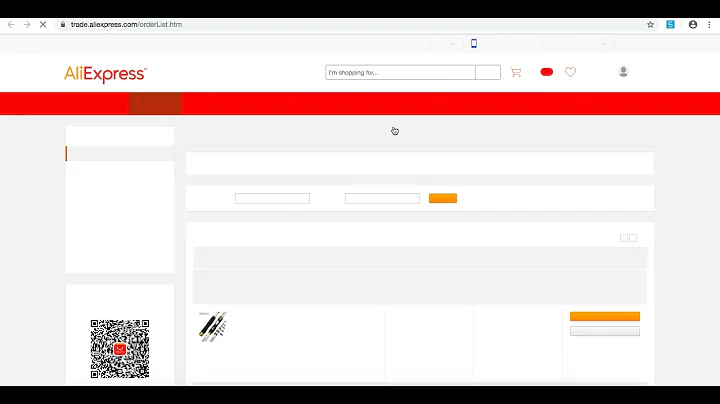Effective Online Marketing for Restricted Products
Table of Contents:
- Introduction
- The Challenge of Advertising Restricted Products Online
- Word of Mouth Advertising: An Effective Yet Limiting Option
- The Power of SEO and Content Marketing
- Influencer Marketing: A Worthwhile Channel
- Partnerships: Leveraging Blogging and Comparison Sites
- Bridge Pages: An Alternative Approach
- Podcast Advertising: Reaching a Targeted Audience
- Traditional Media: Exploring Offline Advertising Options
- The Future of Advertising Restricted Products
- Conclusion
Article:
How to Successfully Market Restricted Products Online
Introduction
In today's digital age, marketing restricted products online can be a significant challenge. With platforms like Facebook and Google AdWords imposing strict limitations on advertising in certain categories, businesses in industries such as tobacco, CBD, firearms, and sexual enhancement products often find themselves facing a lack of viable options. However, this article aims to shed light on effective strategies for marketing restricted products online, emphasizing the power of SEO, content marketing, influencer partnerships, and traditional offline media.
The Challenge of Advertising Restricted Products Online
When it comes to advertising restricted products online, businesses encounter numerous roadblocks. Major online platforms like Facebook and Google AdWords have stringent policies in place, prohibiting the promotion of certain product categories. This poses a significant obstacle for businesses in industries like tobacco, CBD, firearms, and sexual enhancement products. Finding alternative avenues to reach their target audience becomes crucial.
Word of Mouth Advertising: An Effective Yet Limiting Option
One way to promote restricted products is through word of mouth advertising. Encouraging satisfied customers to share their positive experiences can generate organic exposure. However, businesses cannot solely rely on word of mouth, as it may not reach a broad enough audience. Therefore, it is necessary to explore other strategies that offer more scalable growth.
The Power of SEO and Content Marketing
The most vital channel for marketing restricted products online is through an effective SEO and content marketing strategy. By ensuring that your website is organically visible on search engines like Google, businesses can attract potential customers actively searching for their specific products. This involves implementing targeted content on a monthly basis, focusing on relevant keywords, and utilizing backlinks and anchor text to reinforce visibility. While there is an extensive strategy behind it, SEO and content marketing offer a primary and long-term solution for advertising restricted products online.
Pros:
- Organic visibility on search engines
- Targeted content attracts interested customers
- Long-term and scalable marketing solution
Cons:
- Requires consistent investment in creating and optimizing content
- Competing for visibility in a crowded online landscape
Influencer Marketing: A Worthwhile Channel
Another valuable channel for marketing restricted products is through influencer partnerships. Collaborating with influencers who have a significant following in the target market allows businesses to tap into their established credibility and reach. However, one challenge with influencer marketing lies in attribution. It can be challenging to measure the direct impact and return on investment from influencer campaigns. Despite this limitation, influencer marketing remains a viable option worth exploring for businesses in restricted industries.
Pros:
- Leverage influencer's established credibility and audience
- Increased brand exposure and potential customer reach
Cons:
- Difficult to measure the direct impact and ROI of influencer campaigns
Partnerships: Leveraging Blogging and Comparison Sites
One often overlooked strategy for marketing restricted products is through partnerships with relevant blogging and comparison sites. These platforms provide a valuable opportunity to sponsor content or rent email lists, reaching a targeted audience interested in comparing different products or companies. By strategically aligning with such platforms, businesses can increase their visibility and attract potential customers who are actively seeking alternatives within their restricted product category.
Pros:
- Access a targeted audience interested in product comparisons
- Increase visibility and brand exposure through partnerships
Cons:
- Requires identifying and establishing partnerships with relevant platforms
- Cost implications of sponsorship or renting email lists
Bridge Pages: An Alternative Approach
For businesses facing severe restrictions on major advertising platforms like Facebook and Google, utilizing bridge pages can be a viable alternative. Bridge pages act as a buffer between these platforms and the business's website, allowing for the promotion of restricted products without violating advertising policies. By creating landing pages that adhere to guidelines and avoiding explicit mentions of restricted products, businesses can drive traffic to their website through indirect associations. This strategy requires careful execution to ensure compliance with platform terms and conditions.
Pros:
- Allows promotion of restricted products without violating policies
- Creates a buffer between platforms and the business's website
Cons:
- Requires careful execution to avoid policy violations
- Potential challenges in establishing trust and legitimacy with bridge pages
Podcast Advertising: Reaching a Targeted Audience
Podcasts have gained immense popularity in recent years and offer another effective avenue for advertising restricted products. By targeting podcasts that cater to their specific demographic, businesses can sponsor episodes and have the host mention their brand, offering promo codes to drive engagement. Podcast advertising provides an opportunity for repeated exposure to a captive and loyal audience, increasing brand recognition and driving direct or organic traffic to the business's website.
Pros:
- Repeated exposure to a targeted audience
- Increased brand recognition and direct/organic traffic
Cons:
- Limited to the podcast's audience and reach
- Difficulty in measuring the impact of podcast advertising
Traditional Media: Exploring Offline Advertising Options
While the digital landscape dominates marketing strategies, traditional offline media can still be leveraged effectively for advertising restricted products. Certain radio channels and streaming providers allow the promotion of restricted products, offering businesses an opportunity to reach a broader audience. Platforms like Hulu also provide self-service advertising options, enabling businesses to run video ads at a fraction of the cost of traditional TV commercials. Exploring offline advertising avenues can supplement online efforts and drive brand awareness.
Pros:
- Reach a broader audience through traditional media channels
- Cost-effective advertising options on platforms like Hulu
Cons:
- Limited targeting capabilities compared to online channels
- Potential challenges in measuring the impact of offline advertising campaigns
The Future of Advertising Restricted Products
While marketing restricted products online remains challenging, there is hope for positive change in the future. Industries like CBD are gradually experiencing relaxed advertising restrictions, and some predict that cannabis may become fully legal in the United States within the next 12 to 24 months. However, certain categories like firearms are likely to face continued restrictions. Staying up to date with evolving regulations and exploring new marketing opportunities as they arise will be key to success in advertising restricted products.
Conclusion
Marketing restricted products online requires creativity, adaptability, and a willingness to explore alternative channels. While word of mouth advertising, SEO and content marketing, influencer partnerships, and traditional offline media can all play their part, there is no one-size-fits-all solution. Businesses must navigate the restrictions imposed by major platforms, leverage available options, and constantly adapt their strategies to remain competitive. With careful planning and a comprehensive approach, it is possible to successfully market restricted products and achieve substantial growth in the online space.
Highlights:
- Advertising restricted products online presents significant challenges due to limitations imposed by platforms like Facebook and Google.
- Word of mouth advertising, SEO and content marketing, influencer partnerships, and traditional offline media are effective strategies for marketing restricted products.
- Bridge pages offer an alternative approach to advertising restricted products on major platforms without violating policies.
- Podcast advertising provides repeated exposure to a targeted audience, driving direct or organic traffic to businesses' websites.
- Exploring partnerships with blogging and comparison sites can increase visibility within restricted industries.
- Traditional offline media, such as radio and streaming providers, offer additional advertising avenues for businesses in restricted categories.
- The future of advertising restricted products shows potential for relaxed restrictions in industries like CBD and cannabis, while others may face continued hurdles.
FAQs:
Q: How can I advertise my restricted products online when major platforms prohibit it?
- A: While advertising restricted products online can be challenging, there are alternative strategies to consider. Word of mouth advertising, SEO and content marketing, influencer partnerships, podcast advertising, and traditional offline media can all help reach your target audience.
Q: What are bridge pages, and how can they be used for advertising restricted products?
- A: Bridge pages act as intermediary pages between major advertising platforms and your website. By creating landing pages that comply with platform guidelines and avoiding explicit mentions of restricted products, you can drive traffic to your website through indirect associations.
Q: Are there any offline advertising options for promoting restricted products?
- A: Yes, certain traditional media channels, such as certain radio stations and streaming providers, allow the advertising of restricted products. Platforms like Hulu also offer self-service advertising options at a fraction of the cost of traditional TV commercials.
Q: What does the future hold for advertising restricted products online?
- A: While restrictions on advertising in certain industries may evolve over time, it is important to stay informed about changing regulations. Industries like CBD may experience more relaxed restrictions, while others, like firearms, are likely to face continued limitations. Flexibility and adaptability will remain crucial in this ever-changing landscape.















